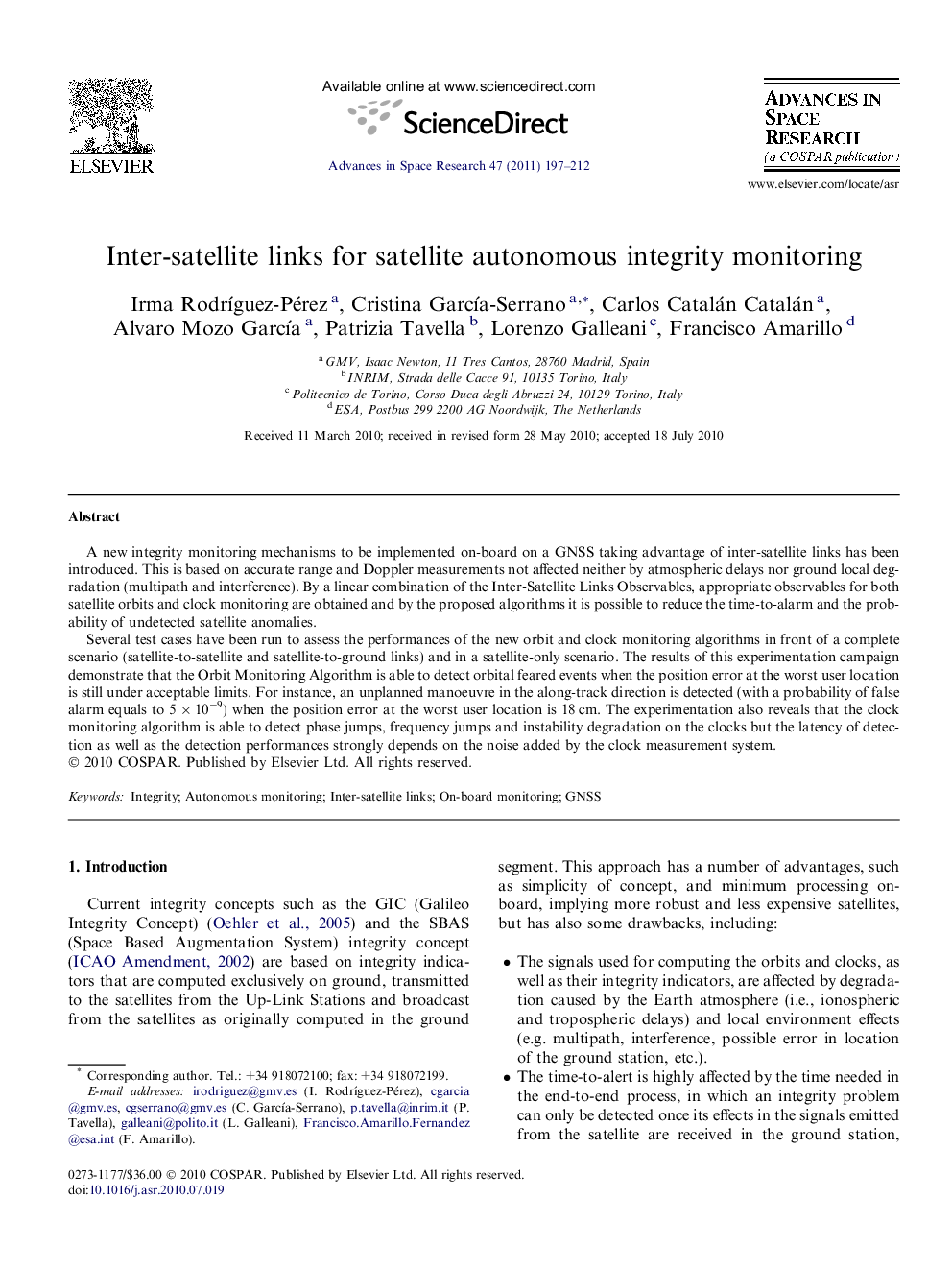| Article ID | Journal | Published Year | Pages | File Type |
|---|---|---|---|---|
| 1766982 | Advances in Space Research | 2011 | 16 Pages |
Abstract
Several test cases have been run to assess the performances of the new orbit and clock monitoring algorithms in front of a complete scenario (satellite-to-satellite and satellite-to-ground links) and in a satellite-only scenario. The results of this experimentation campaign demonstrate that the Orbit Monitoring Algorithm is able to detect orbital feared events when the position error at the worst user location is still under acceptable limits. For instance, an unplanned manoeuvre in the along-track direction is detected (with a probability of false alarm equals to 5Â ÃÂ 10â9) when the position error at the worst user location is 18Â cm. The experimentation also reveals that the clock monitoring algorithm is able to detect phase jumps, frequency jumps and instability degradation on the clocks but the latency of detection as well as the detection performances strongly depends on the noise added by the clock measurement system.
Related Topics
Physical Sciences and Engineering
Earth and Planetary Sciences
Space and Planetary Science
Authors
Irma RodrÃguez-Pérez, Cristina GarcÃa-Serrano, Carlos Catalán Catalán, Alvaro Mozo GarcÃa, Patrizia Tavella, Lorenzo Galleani, Francisco Amarillo,
